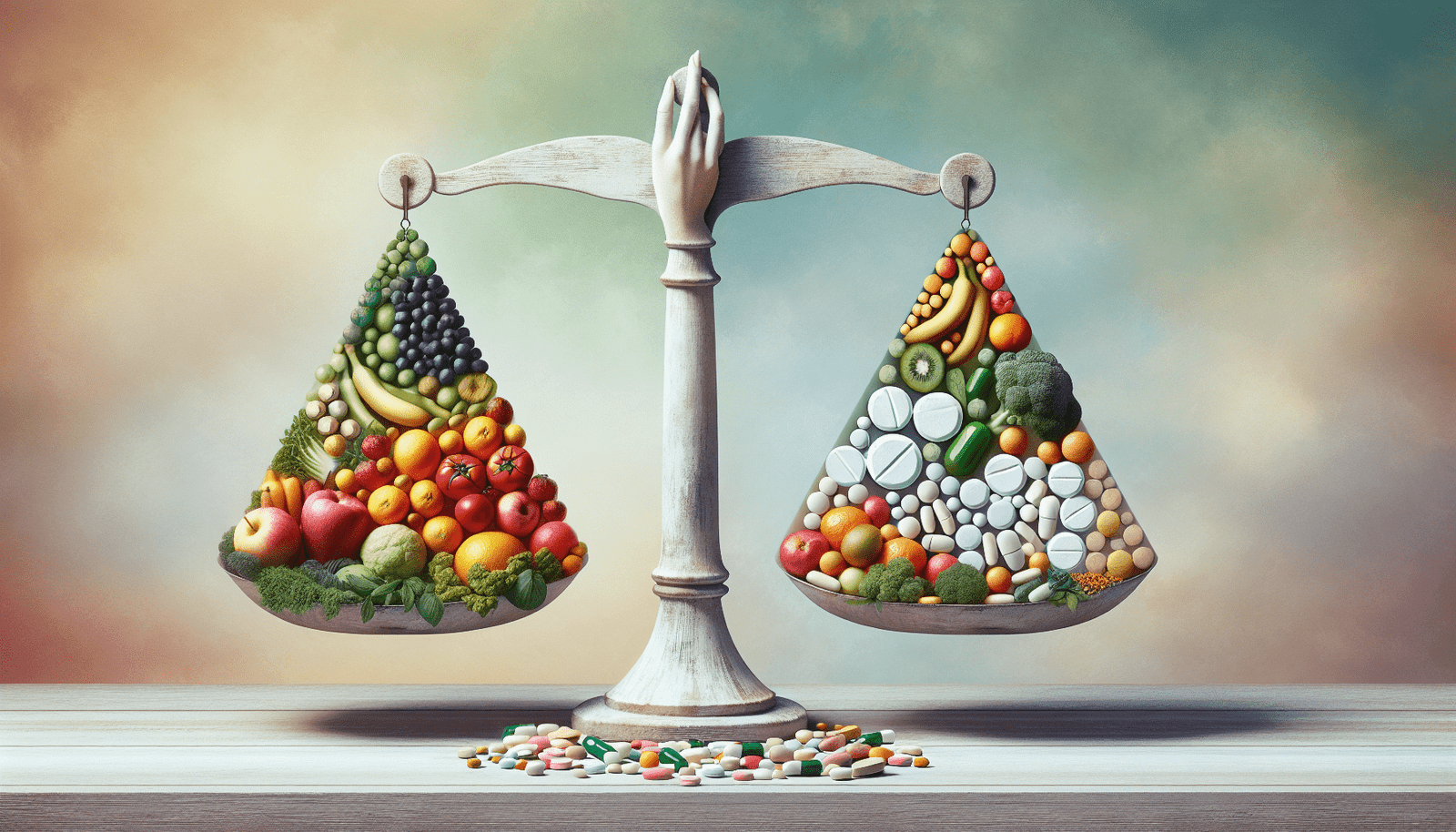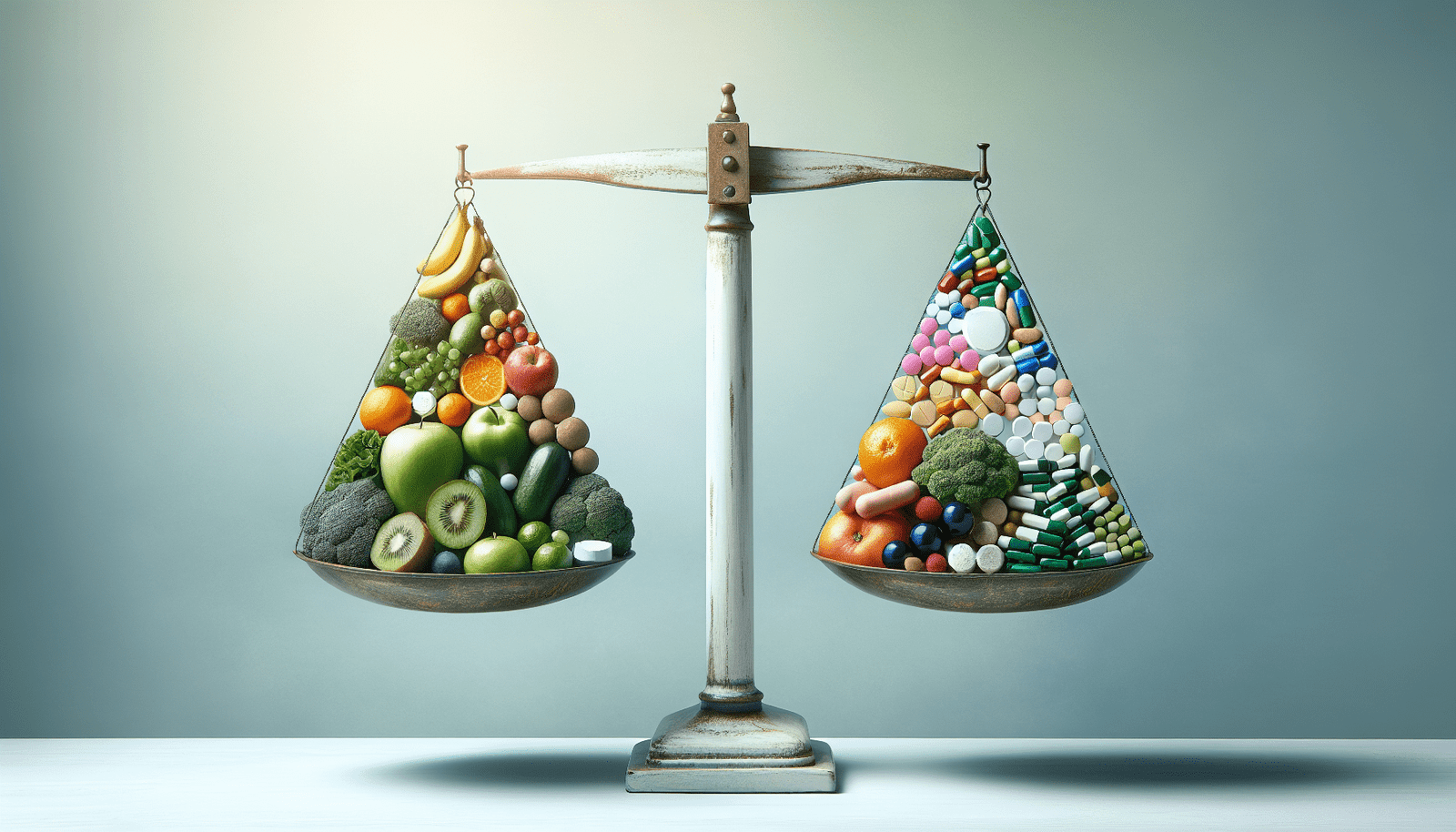Have you ever wondered when it’s time to stop dieting for the sake of your health? The world of dieting can be overwhelming and filled with endless options, each promising a path to a healthier you. But at what point does dieting stop being beneficial and start becoming a hindrance to your well-being? Understanding when to stop dieting is crucial for achieving and maintaining optimal health. This article will guide you through recognizing the signs, understanding the impacts of prolonged dieting, and embracing a more balanced approach to nutrition.

Understanding the Purpose of Dieting
What is Dieting?
Dieting typically refers to the practice of altering one’s food intake to achieve specific health or aesthetic goals. It can range from calorie restriction to adopting certain food principles like low-carb, vegan, or ketogenic diets. While all diets aim to help you reach a particular outcome, not every diet suits everyone.
Why Do People Diet?
Dieting is often pursued for weight loss, health improvement, or managing specific medical conditions. The motivation behind dieting can significantly influence the outcome and experience. It’s essential to understand your reasons, as they help shape a realistic and sustainable approach to your health goals.
The Signs You Might Need to Stop Dieting
Physical Health Indicators
Prolonged dieting can have several adverse effects on your physical health. Signs that might indicate the need to reevaluate your diet include persistent fatigue, frequent illness, hair loss, or difficulty sleeping. Your body needs sufficient nutrients and energy to function correctly, and a restrictive diet can compromise this balance.
| Indicator | Description |
|---|---|
| Persistent Fatigue | Constant tiredness despite sufficient sleep and rest. |
| Frequent Illness | Regular colds or sickness due to a weakened immune system. |
| Hair Loss | Shedding hair more than usual, indicating nutrient deficiency. |
| Sleep Difficulties | Trouble falling or staying asleep, affecting overall health. |
Emotional and Mental Health Impact
Dieting affects not just your physical state but also your mental and emotional well-being. If food starts becoming an obsession, or you feel anxious or guilty about eating certain foods, it might be time to reconsider your approach. Listen to your feelings; they are as important as any physical sign.
Plateau in Progress
If you’ve been dieting for a while but stopped seeing progress, you might’ve reached a plateau. This can be frustrating and demotivating, leading you to overly restrict your diet further, which might not be healthy or sustainable. Evaluating your diet’s effectiveness is crucial to maintaining motivation and well-being.

The Effects of Prolonged Dieting
Nutritional Deficiencies
Long-term dieting, particularly restrictive diets, can lead to nutritional deficiencies. When diets compromise essential nutrients, it can impact nearly every aspect of your health, from bone density to cognitive function.
Metabolic Changes
Metabolism can slow down after extended periods of calorie restriction, making it more challenging to maintain or lose weight over time. This decrease can be counterproductive, often resulting in the dreaded ‘yo-yo’ effect, where weight is regained quickly after dieting.
| Effect | Description |
|---|---|
| Slowed Metabolism | The body adapts to fewer calories by reducing energy expenditure. |
| Yo-Yo Dieting | Repeatedly losing and regaining weight, causing health complications. |
Psychological Fatigue
The mental discipline required for consistent dieting can lead to psychological fatigue. This fatigue can translate into increased stress, anxiety, and depressive symptoms, which are detrimental to both psychological and physical health.

Transitioning to a More Balanced Approach
Intuitive Eating
Intuitive eating focuses on listening to your body’s natural hunger cues rather than following a strict diet plan. This approach encourages a healthy relationship with food, emphasizing satisfaction and nutrition over restriction.
Importance of Balance
Achieving balance means incorporating all food groups and recognizing that all foods can fit into a healthy diet. This approach can reduce dietary obsession and improve mental health by alleviating the pressure of constantly monitoring food intake.
Set Realistic and Sustainable Goals
Sustainability is key in any health journey. Setting goals that are realistic and manageable ensures long-term success and health improvement. Consider aspects of your lifestyle that can be adjusted healthily and sustainably.

Finding Professional Guidance
Consult a Nutritionist or Dietitian
Professionals can offer personalized insight into your dietary needs and how to achieve them without resorting to extreme measures. Their support can help create a balanced plan that addresses your unique health challenges and goals.
| Professional | Role |
|---|---|
| Nutritionist | Provides guidance on healthy eating based on general dietary needs. |
| Dietitian | Offers medically-backed advice, often specialized in clinical settings. |
Mental Health Support
If dieting has impacted your mental health, seeking professional help is wise. Therapists specializing in eating behaviors can help address underlying issues and promote a healthier outlook on food and body image.

Conclusion: Embracing a Healthier Mindset
Dieting is not inherently bad, but it is crucial to recognize when it is no longer serving your health positively. By understanding the signs that indicate it might be time to stop dieting, you can prioritize your overall well-being. Transitioning to a balanced approach that values your body’s cues and nutritional needs is essential. Remember, achieving optimal health is a journey, not a race, and it’s most sustainable when done with care and mindfulness.